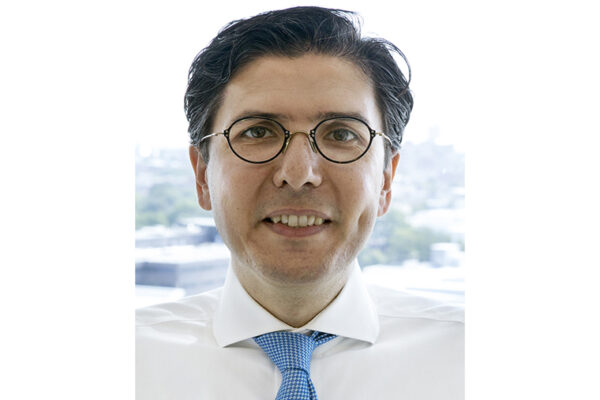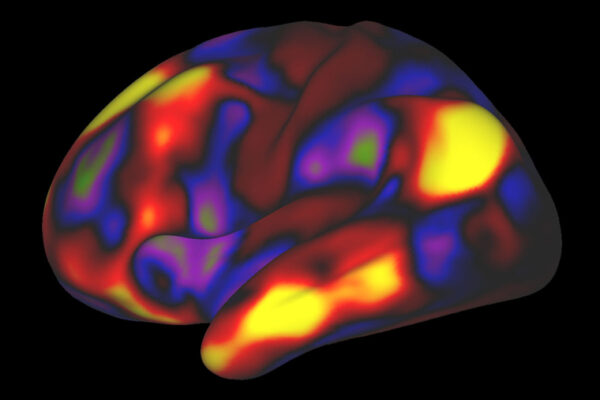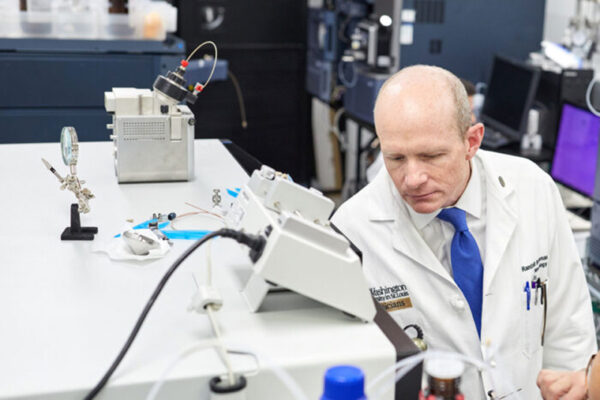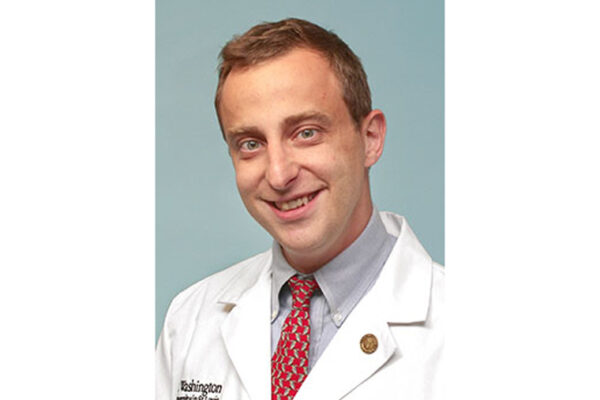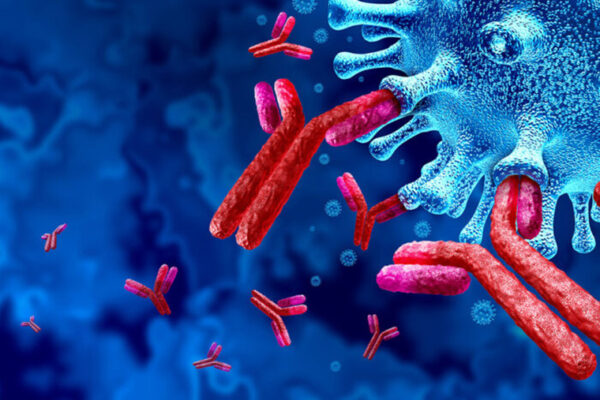Al-Aly named associate editor of nephrology journal
Ziyad Al-Aly, MD, an assistant professor of medicine at the School of Medicine, has been named an associate editor of the Journal of the American Society of Nephrology.
Risk, resiliency in aging brain focus of $33 million grant
Funded by a $33.1 million grant from the National Institute on Aging, researchers from the School of Medicine and other institutions have launched a large study that investigates just what keeps our brains sharp as we age and what contributes to cognitive decline.
Predicting the chaos in Tourette syndrome tics
Interdisciplinary research from Washington University in St. Louis has uncovered a pattern in the tics associated with Tourette syndrome.
Blood test for Alzheimer’s highly accurate in large, international study
Using mass spectrometry, Washington University School of Medicine researchers have developed a blood test that is up to 93% accurate at identifying people at risk of Alzheimer’s dementia. The findings suggest that the test should be considered for routine screening and diagnosis.
Med facilities services moving to Mid Campus Center
The School of Medicine’s Facilities Integrated Service Center is planning to relocate to the Mid Campus Center (MCC) in May. Construction in the MCC to accommodate the move will begin Friday, Feb. 25.
Jansen receives NIH grant
Silvia Jansen at the School of Medicine received a five-year $1.65 million grant from the National Institute of General Medical Sciences of the National Institutes of Health (NIH) for research titled “Regulation of membrane trafficking by coronins.”
Engineering faculty, alumna named AIMBE fellows
Three faculty members and one alumna of the McKelvey School of Engineering have been named fellows of the American Institute for Medical and Biological Engineering.
Ances honored by Down syndrome society
Beau M. Ances, MD, PhD, the Daniel J. Brennan Professor of Neurology at the School of Medicine, recently received the Shining Star Award from the Down Syndrome Association of Greater St. Louis.
COVID-19 survivors face increased mental health risks up to a year later
People who have had mild or serious COVID-19 infections have a significantly higher chance of experiencing mental health problems, according to new research from the Washington University School of Medicine and the Veterans Affairs St. Louis Health Care System.
Antibodies improve in quality for months after COVID-19 vaccination
Antibodies elicited by COVID-19 vaccination become steadily more powerful for at least six months after vaccination, according to a study by researchers at Washington University School of Medicine that involved the Pfizer-BioNTech COVID-19 vaccine.
View More Stories
